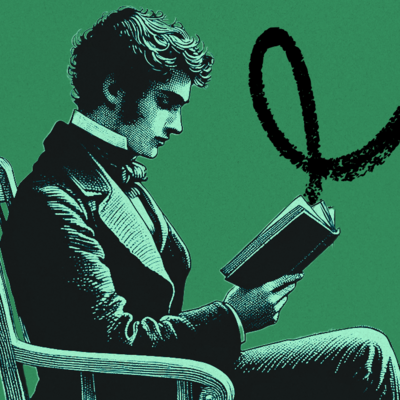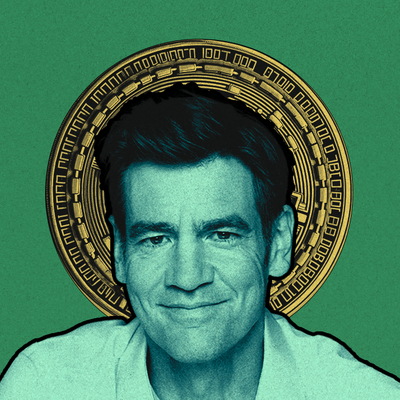
Sponsored By: Fitt Insider
Technology is impacting every aspect of wellness. From health optimization to connected fitness, there are hundreds of under-the-radar companies and unexplored opportunities in this space.
Enter Fitt Insider. It’s a media platform, job board, and investment fund focused on the business of fitness and wellness. They publish in-depth reports on industry trends and companies, detailing everything from mental fitness to brands like WHOOP, Peloton, Levels, and Strava.
To learn more and access over 175 free reports, click the link below.
So...I wrote something weird. Usually when I write it is because I have an opinion I want to share. This week I sat down and these words just poured out. They're a reflection on utility, my time as a Mormon missionary, and how we deploy our capital. It is new and I'm nervous. I hope you enjoy this little freebie from me to you.
Perhaps the most important piece of analysis I ever performed was done while I resided in a stupidly hot apartment in the hills of Oakland. In a bedroom with no TV, one window, and absolutely zero forms of entertainment, I laid back and noodled on the highest ROI use of my free time. My largest constraint was that I had absolutely no money. Zero, zilch, nada. Going to In-n-Out was a special treat and I used to eat the free cereal at work for nearly all my meals.
As I sat alone in this little room, sweating and miserable, I sketched out a formula for how I could most effectively use what little money I had to entertain myself. It came out like this:
Hours of Entertainment / Total Cost = Unique Distraction Units (UDU)
Using this formula you can get a rough approximation of how much value you get per dollar spent. A videogame that costs 60 bucks and takes 60 hours to complete gives you a Distraction Value score of 1. A movie in theaters is a much worse deal. It costs $20 bucks and gives 2 hours of entertainment, yielding a UDU score of 0.1. However, there is a next step in the formula—connecting the UDU to the utility gained. Not all hours of entertainment are created equal.
UDU x Total Utility Gained = Total Entertainment Value (TEV).
An audiobook that was 60 hours long, cost 12 dollars, and gave me a personal level 30 utility units resulted in a total entertainment value of 150. It seemed fairly simple! I just had to run the algorithm over and over again, comparing TEV scores, and then pick the activity with the highest score that I could afford.
However I quickly ran into a problem—my scores kept shifting. Some days when I was motivated and alert, the gym would pull a 100+ TEV. On other days, when my body felt composed purely of mashed potatoes, the gym might have a TEV of 5. The issue was the last variable, Total Utility Gained kept changing on me.
In neoclassical economics, the definition of utility is roughly, “the value or enjoyment gained by consuming a good or service.” The core assumption at the heart of that definition is that consumers are rational and maximize their available utility. And abstractly, perhaps proudly, our inner intellectual may want to agree with this definition. Of course, the aggregated human population would act in a manner both rational and self-interested!
Well, I didn’t. I spent most of those months just watching reruns of the Office which may be so bad for me that it ends up having a negative TEV. Why? Why couldn’t I be better? This frustrated the rational analyst in me to no end. My formula and logic were sound, why couldn’t I force myself to follow it? Why couldn’t I behave like a rational, utility-maximizing individual?
Why people make stupid, self-destructive choices is something that nearly every philosopher since Aristotle has wrestled with. So far, there hasn’t been a convincing answer. Our own, ultra-modern, highly-scientific institutions have also failed.
- The sociologists who love the work of Weber would say that humans are unable to behave rationally because of social structures.
- Psychologists may blame individual temperament or mental barriers.
- Neoclassical economists would completely ignore me, write some abstract mathematics to confuse the laymen, and tell me to pull myself up by my bootstraps.
- Behavioral economics would support me in my failure by saying that I have “bounded self-control.”
The reason why that formula, created so long ago, has become so important to me is that it was the starkest framing of the futility of utility. Despite how desperately I wished it, no matter how much I prayed for it, I could never make myself truly utility-maximizing. There was always something that got in the way of making the right choice.
In the pursuit of utility maximization, I ended up making my life more miserable.
When I had this realization that the pursuit of perfect utility was folly, it became a sort of intellectual earworm for me. I kept seeing it all over the place. The more I looked, the more I saw this same phenomenon occurring. Rather than being confined to my own social habits, I saw similar choices being made at work. Exalted executives and proletariat peasants, the whole organization from top to bottom, made sub-optimal utility choices constantly.
Good people, bad managers
I kicked off a recent essay on Spotify with this anecdote,
“Within 24 hours of employment at Pandora Radio, I knew the company was destined for doom. It was my first internship in 2016 in the Bay Area, with a role on the corporate strategy team. At the time, executives would stride around the office, lauding Pandora’s superior music recommendation capabilities and long-time leadership in the space. There was some panic over Spotify, but Pandora felt it could respond well. However, as Evan walked over to his desk he saw a C-suite executive happily bopping his head, Spotify’s desktop app open on his computer. When Evan later asked that executive why he was on Spotify, he responded simply, “It is more convenient.”
Obviously, the Spotify threat should’ve been taken more seriously when Pandora’s own executives preferred the service. And to be fair, there were lots of serious, big discussions about how to respond. The highest utility choice for the company was to respond appropriately and crush the Swedish upstart. However, the highest utility choice for the company is not the same as the highest utility choice for the individuals. There were many people whose lives would be significantly worse if we made the switch to becoming a streamer. Even though they were equity holders! Even though the long-term fiscal and utility-maximizing choice was to go head-on with Spotify, some employees dragged their feet. There was some kind of mismatch between what they wanted (to protect their jobs/lifestyles) and what the company wanted (to do anything but be acquired by SiriusXM).
This pattern of employees helping themselves over helping the company is a fairly understood one (and is something I’m actually in favor of in some circumstances). However, I’ve also seen good ideas dismissed because of a founder’s pride, managers fired because their talent threatened the person above them, and employees self-sabotage their careers with sexual harassment. There still seem to be poor choices made and utility not maximized.
In the field of employee productivity, just like in academia, there are dozens of frameworks and theories to explain and remove this problem. Objective, Key Result. Key Performance Indicators. Directly Accountable Individual. Good to Great. The list goes on and on. All of these methods hold some measure of truth. I’ve seen them work well and I’ve also seen them destroy companies.
Note: Just as there are theories to explain why individuals don’t do the right thing, similar theories exist for companies. Disruptive Innovation from Clayton Christensen, Porter’s Five Forces, the list goes on. If you become a student of business history you’ll note that various theories of corporate governance rise and fall. In the 90s, GE made conglomerates good. Then in the 2000s, Google proved that theory wrong. Conglomerates were out, focused companies were in. Then suddenly, conglomerates were back! Amazon’s relentless appetite for uncorrelated businesses was suddenly wisdom instead of folly. In my opinion, the chattering class will just say that whatever is the current thing is the “right way to do business.”
So yet, again I’m left wondering why don’t people act rationally and maximize their utility.
Utility now
Some of the hardest lessons of my life occurred when I was a missionary. Growing up as a middle-class white guy in rural Minnesota, I had been completely sheltered from the hardships of life. On my first day on the job, I helped a woman, her face purple and blotchy with bruises, hide from her boyfriend. There was another woman, with hungry desperation in her eyes and track marks running up her arm, asking for money. I still see those desperate faces in my dreams sometimes.
Watching people unable to free themselves from drugs, from abusive partners, from poverty, was perhaps the most difficult aspect of my service. Some would try and try, for months or years on end, to be free of their hardships with absolutely no success. Others were the complete opposite. I once had a person I was teaching quit crystal meth cold turkey and be completely fine. Note: It is important for me to say this is incredibly dangerous and should not be done this way but she did it without talking to us.
Even in the most dire of circumstances, utility maximization remaind elusive.
It’s been 6 years since that summer in Oakland and 10 years since I left for my mission. Since then, I’ve kept looking for the theory. The one that would explain why some people do the right thing for themselves and others don’t. Some universal truth to illuminate the murky depths of the human condition.
Depending on the day, I probably will give you a different answer. Sometimes, I think the sociologists got it right and we are mostly products of our environments. (Maybe I believe this to justify my bachelor's degree in sociology). At other points, I think the behavioral economists’ models of bounded behavior and time/information constraints are correct. In some of my more reflective moods, I turn to the balm of spirituality and divine intervention.
That formula was so important to me not because it was useful, but because it was useless. It was an articulation of the futility of universal evaluation mechanisms. Our goal as individuals should always be to become more rational and rigorous. We shouldn’t jump blindly into major decisions. However, in the rush to find the perfect choice, we often sacrifice the good.
I was in the audience at a Q&A Mitt Romney gave about 8 years ago. By all accounts, he has achieved the height of personal utility maximization. A beautiful family that loves him, a wildly successful career in business, meaningful religious service, and as he put it he “got second place in the presidential race.” One audience member asked the insightful question, “What was your plan to get where you are? How did you do it?” His chuckling answer surprised us all.
“I didn’t have a plan at all. I just knew which direction I wanted to run and I sprinted towards it all my life.”
I wish when I was a missionary I had focused less on converting and more on helping. I wish when I was at all my previous startups I had focused more on building and less on winning. Sure I may not have accomplished my initial goals but those outcomes would’ve been good enough. Our individual utility preferences are so abstract that the pursuit of perfect optimization is ultimately fruitless.
I wish that I was the kind of thinker who could now wave their hands and tell you “thus, you must do X and you will be a better utility maximizer.” However, that I don’t have an answer to this conundrum is the point of this entire essay! It is in the acknowledgment that we don’t know how any of this works we can find comfort in doing things our own way. Which is the only way to achieve differentiated outcomes anyway. By not worrying about the details or the distant future, and instead focusing on how we can live our best daily lives, we will be successful. Just pick a direction, and run.
Find Out What
Comes Next in Tech.
Start your free trial.
New ideas to help you build the future—in your inbox, every day. Trusted by over 75,000 readers.
SubscribeAlready have an account? Sign in
What's included?
-
Unlimited access to our daily essays by Dan Shipper, Evan Armstrong, and a roster of the best tech writers on the internet
-
Full access to an archive of hundreds of in-depth articles
-
-
Priority access and subscriber-only discounts to courses, events, and more
-
Ad-free experience
-
Access to our Discord community
Thanks to our Sponsor: Fitt Insider
If you are interested in the fitness and wellness industry, then you need to check out Fitt Insider. You can access more than 175 free reports, plus job postings, industry trends, and more all in one place.




Comments
Don't have an account? Sign up!